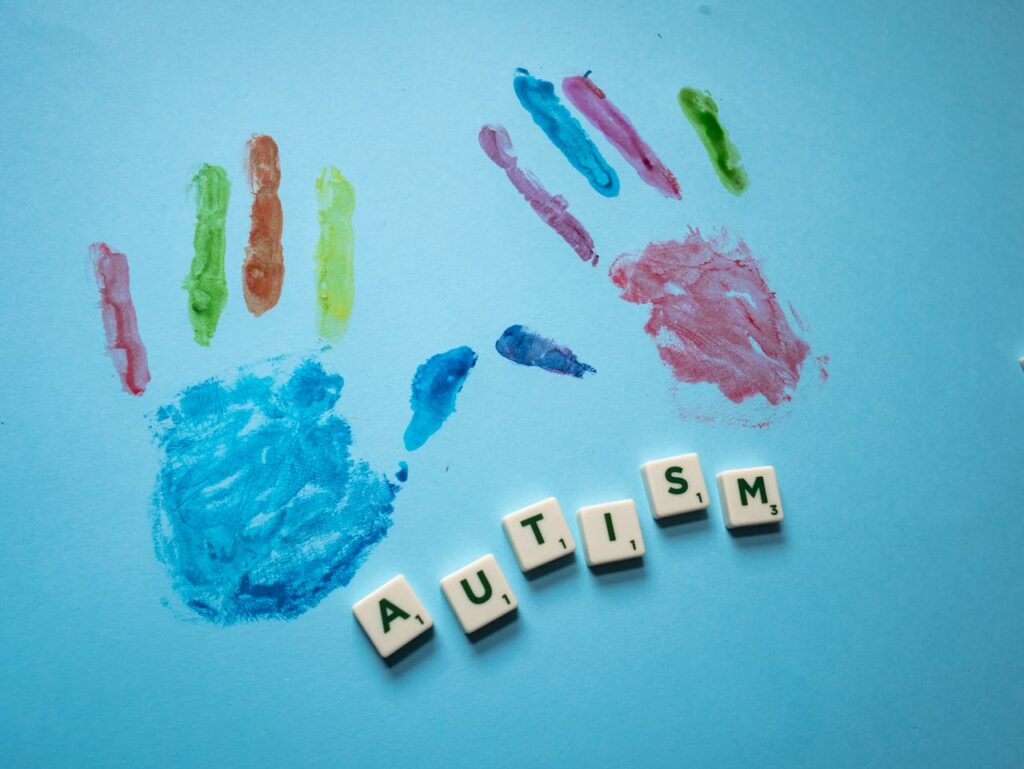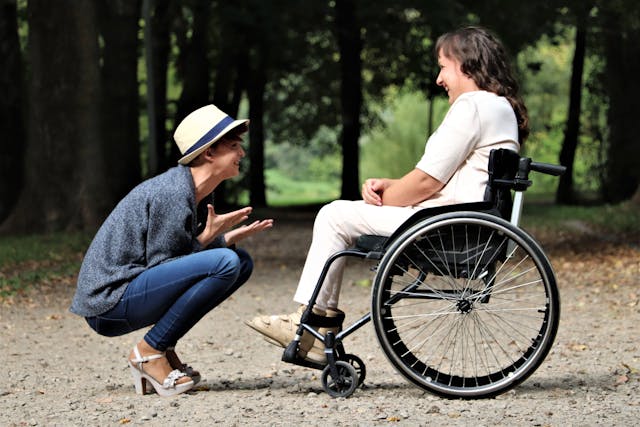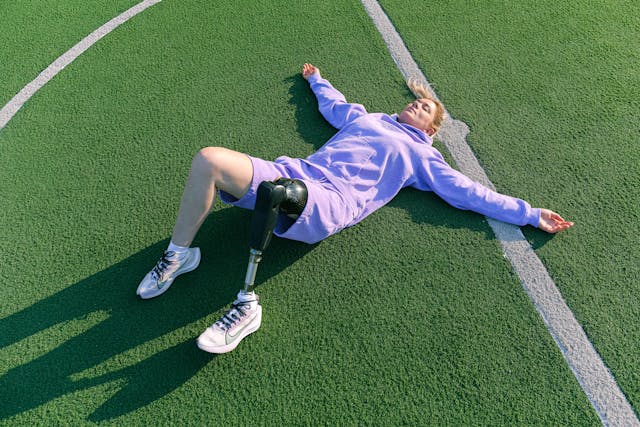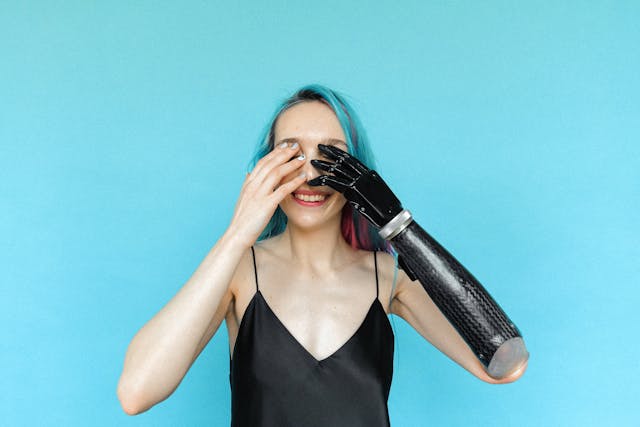Movies have the power to shape perceptions, spark conversations, and create lasting impact. When it comes to disability representation, authentic storytelling is crucial in breaking stereotypes and showcasing the real experiences of disabled individuals. Over the years, filmmakers have made strides in casting actors with disabilities and telling stories that go beyond clichés of pity or inspiration.
This article highlights ten movies that portray disabilities with authenticity, featuring genuine representation and thought-provoking narratives. Each of these films contributes to changing how society views disabilities, making inclusivity a reality in cinema.
1. Ahaan (2019) – Down Syndrome
Story Overview
Ahaan follows a young man with Down syndrome who forms an unexpected friendship with his neighbor, who has obsessive-compulsive disorder (OCD). Their bond leads both characters on a journey of self-discovery, challenging societal perceptions of disability.
Authentic Representation
The film is groundbreaking in Indian cinema as it features Abuli Mamaji, an actor with Down syndrome, in the titular role. Director Nikhil Pherwani cast Mamaji to bring genuine representation to the character, avoiding caricatured portrayals and ensuring authenticity. The narrative delves into the challenges and aspirations of individuals with intellectual disabilities without resorting to preachiness, offering a genuine glimpse into their lives.
Why It Matters
This film normalizes intellectual disabilities in Indian cinema, which rarely explores such topics with sensitivity and realism. By showcasing Ahaan as a fully developed character with ambitions, emotions, and humor, the movie challenges the pity-based narratives often associated with Down syndrome.
2. CODA (2021) – Deaf Representation
Story Overview

CODA (Child of Deaf Adults) tells the story of Ruby, a hearing teenager who is the only non-deaf member of her family. She struggles between her passion for music and her family’s dependence on her as an interpreter for their fishing business.
Authentic Representation
The film stands out for casting deaf actors in the roles of Ruby’s family members, including Marlee Matlin and Troy Kotsur. This casting choice brings depth and authenticity to the portrayal of deaf culture and family dynamics. CODA received critical acclaim, winning the Academy Award for Best Picture, with Kotsur earning Best Supporting Actor, making him the first deaf male actor to win an Oscar.
Why It Matters
The film highlights the challenges and beauty of growing up in a deaf family, shedding light on deaf culture, identity, and accessibility struggles. It won Best Picture at the Academy Awards, proving that authentic representation resonates with audiences and critics alike.
3. Crip Camp (2020) – Various Disabilities
Story Overview
This documentary takes viewers back to the early 1970s, focusing on Camp Jened, a summer camp for teenagers with disabilities. The film showcases how the camp experience galvanized many to become activists in the disability rights movement.
Authentic Representation
Crip Camp features firsthand accounts from campers, providing an unfiltered look into their lives and the challenges they faced. The documentary highlights the significance of community and collective action in advocating for disability rights. It has been lauded for its candid storytelling and was nominated for an Academy Award for Best Documentary Feature.
Why It Matters
This documentary is a must-watch for anyone interested in disability rights. It highlights the power of community, advocacy, and the fight for equal opportunities, showcasing real people who changed history.
4. Freebird (2021) – Down Syndrome
Story Overview

This animated short film captures the life of a boy with Down syndrome, from birth to adulthood, in just five minutes. It challenges misconceptions by presenting his life experiences in a joyful, uplifting manner.
Authentic Representation
The film challenges misconceptions about Down syndrome by presenting a narrative that celebrates the beauty and richness of a life lived with the condition. It has been praised for its positive depiction and has garnered several awards for its impactful storytelling.
Why It Matters
It is a powerful yet simple way to challenge stereotypes, helping viewers see Down syndrome as a natural part of human diversity rather than a limitation.
5. The Dress (2020) – Dwarfism
Story Overview
This Polish short film centers on Julia, a woman of short stature, who yearns for intimacy and connection. The narrative explores her desires and the societal prejudices she faces.
Authentic Representation
The Dress addresses themes of loneliness, desire, and discrimination, providing a poignant look into the life of a person with a physical disability. The film received critical acclaim and was nominated for the Academy Award for Best Live Action Short Film.
Why It Matters
The film humanizes disability and highlights the social and emotional challenges disabled individuals face, making it one of the most honest depictions of dwarfism in cinema.
6. Out of My Mind (2024) – Cerebral Palsy
Story Overview
Based on Sharon Draper’s novel, this Disney+ film follows Melody Brooks, a sixth-grader with cerebral palsy who cannot speak or move without assistance. The story captures her journey toward self-expression and inclusion.
Authentic Representation
The film stars Phoebe-Rae Taylor, an actress with a disability, in the role of Melody, ensuring an authentic portrayal. The narrative emphasizes themes of inclusion, advocacy, and the challenges faced by individuals with disabilities in accessing mainstream education.
Why It Matters
It challenges the idea that people with disabilities have intellectual limitations, advocating for inclusive education and respect for nonverbal individuals.
7. Standing Up (2023) – Autism
Story Overview

Inspired by real-life experiences, this film follows a father and his autistic son on a transformative road trip, highlighting the complexities and joys of their relationship.
Authentic Representation
The film casts William Fitzgerald, an autistic actor, in the role of the son, bringing genuine representation to the character. The narrative sheds light on the challenges and misunderstandings surrounding autism, aiming to foster empathy and awareness.
Why It Matters
It moves beyond the “genius autistic savant” stereotype, presenting a nuanced and deeply human portrayal of autism.
8. A Different Man (2023) – Facial Disfigurement
Story Overview
This film tells the story of a man with neurofibromatosis who undergoes facial reconstructive surgery and becomes obsessed with an actor portraying him in a play.
Authentic Representation
British actor Adam Pearson, who has neurofibromatosis type 1, stars in the lead role. Pearson’s involvement ensures an authentic depiction of living with facial disfigurement, challenging societal perceptions and stigmas associated with physical differences.
Why It Matters
It challenges the Hollywood tendency to use makeup and CGI to depict disfigurement, proving that disabled actors should tell their own stories.
9. Wicked (Upcoming) – Physical Disability
Story Overview

An adaptation of the popular Broadway musical, Wicked explores the untold story of the witches of Oz, focusing on the unlikely friendship between Elphaba, the Wicked Witch of the West, and Glinda, the Good Witch.
Authentic Representation
Marissa Bode, an actress who uses a wheelchair, has been cast as Nessarose, marking a significant step toward inclusivity in mainstream cinema. Bode’s casting brings genuine representation to the character, who is depicted with a disability in the original narrative.
Why It Matters
It is a step toward more disabled actors getting mainstream roles, proving that disability should not limit opportunities in film.
10. Beetlejuice (1988) – Neurodivergence Themes
Story Overview
This cult classic tells the story of a ghostly couple navigating the afterlife with the help of the mischievous Beetlejuice.
This classic Tim Burton film tells the story of a recently deceased couple who haunt their former home and enlist a mischievous spirit, Beetlejuice, to help scare away the new inhabitants.
Authentic Representation
Many fans interpret Beetlejuice as a film that resonates with neurodivergent individuals, particularly in its portrayal of social outsiders finding community.
While not explicitly about disability, Burton’s films, including Beetlejuice, have been interpreted as embracing themes of neurodivergence and celebrating characters who feel like outsiders. The film’s portrayal of unconventional characters has resonated with audiences who identify as neurodivergent, offering a sense of representation and acceptance.
Why It Matters
While not explicitly about disability, it fosters conversations about neurodivergence and inclusion in pop culture.
11. The Peanut Butter Falcon (2019) – A Road Adventure with Real Representation
Synopsis: This adventure-drama follows Zak, a young man with Down syndrome, who runs away from a care home to pursue his dream of becoming a professional wrestler. Along the way, he befriends a troubled fisherman, and together, they embark on a heartwarming journey of self-discovery.
Authentic Representation: Unlike many films that cast non-disabled actors in disabled roles, The Peanut Butter Falcon features Zack Gottsagen, an actor with Down syndrome, as the lead character. His natural performance brings genuine warmth, humor, and realism to the role, making the film deeply personal and meaningful.
The film challenges negative stereotypes about intellectual disabilities, showing Zak as an ambitious, independent individual rather than someone defined by his condition. It focuses on his dreams, friendships, and journey, rather than framing Down syndrome as a limitation.
Through its positive and adventurous storytelling, The Peanut Butter Falcon proves that people with disabilities can and should be the heroes of their own stories.
12. The Fundamentals of Caring (2016) – A Story About Independence

Synopsis: This Netflix drama-comedy follows Trevor, a teenager with muscular dystrophy, who embarks on a road trip with his new caregiver, Ben. The journey leads to unexpected friendships, personal growth, and a better understanding of what it means to truly live.
Authentic Representation: While the film received some criticism for not casting an actor with muscular dystrophy, it makes up for it with a well-researched and respectful portrayal of the condition. It avoids turning Trevor into a helpless character and instead presents him as sarcastic, determined, and full of personality.
One of the film’s strengths is its emphasis on agency. Instead of focusing on Trevor’s disability as something tragic, it highlights his humor, desires, and ability to make his own choices. The film also addresses the challenges of caregiving, showing that support relationships are not just about providing physical help, but also about mutual learning and friendship.
By balancing humor with emotional depth, The Fundamentals of Caring offers a refreshing take on disability in film—one that is neither overly sentimental nor patronizing.
13. Stronger (2017) – A True Story of Resilience After Amputation
Synopsis: Based on real events, Stronger tells the story of Jeff Bauman, who lost both legs in the Boston Marathon bombing. The film follows his emotional and physical recovery as he struggles with PTSD, relationships, and his new reality as a double amputee.
Authentic Representation: Although Jake Gyllenhaal, an able-bodied actor, plays Jeff, the film is one of the more accurate and thoughtful portrayals of amputation. It doesn’t romanticize his struggle or turn him into an inspiration cliché, but instead explores the mental and emotional challenges that come with sudden disability.
The film highlights the difficult process of rehabilitation, the strain on personal relationships, and the frustration of being seen as a “hero” when Jeff himself feels lost. It also emphasizes the importance of mental health, therapy, and support systems in adapting to life after a disability.
While Stronger would have been even more powerful with an amputee actor in the lead, it still provides a realistic and impactful portrayal of what it means to rebuild life after limb loss.
14. Sound of Metal (2019) – A Deep Dive into Hearing Loss
Synopsis: A heavy metal drummer’s life is turned upside down when he begins to lose his hearing. Struggling with his new reality, he finds himself in a deaf community where he learns how to adapt, communicate, and find peace in silence.
Authentic Representation: The film stars Riz Ahmed in the lead role, and while he is not deaf in real life, the film features real deaf actors and consultants, making the portrayal of the Deaf community incredibly authentic. It also accurately depicts the stages of hearing loss, frustration, and eventual acceptance.
Sound of Metal shines in its realistic depiction of deaf culture. It does not portray hearing loss as a tragic loss of life, but rather as an adjustment to a different way of living. It also explores the emotional conflict of wanting to “fix” oneself versus embracing a new identity, something many disabled individuals can relate to.
The film is deeply moving and thought-provoking, showing that disability does not mean the end of happiness—it simply means a different kind of happiness.
The Ongoing Need for Authentic Representation

One of the biggest shifts in disability representation is the push for disabled actors to play disabled characters. Historically, Hollywood has favored able-bodied actors for disabled roles, often leading to performances that lack true lived experience.
Casting Disabled Actors in Lead Roles
Movies like CODA, Ahaan, and A Different Man show the importance of casting disabled actors who can bring depth, realism, and honesty to their roles. When an actor personally understands the challenges, emotions, and nuances of living with a disability, the performance feels genuine and relatable.
The industry must continue to create opportunities for disabled actors, not just in disabled roles but in all types of characters. True inclusivity means recognizing that a detective, a superhero, a romantic lead, or a politician can be played by someone with a disability.
Expanding Stories Beyond Disability Struggles
Many disability-focused films in the past centered on overcoming obstacles, medical breakthroughs, or tragic loss. While these stories are important, they do not reflect the full spectrum of disability experiences.
Modern films like Standing Up, The Dress, and Freebird take a different approach by showing disabled individuals as regular people with relationships, ambitions, and emotions that extend beyond their disabilities.
Future storytelling should continue to focus on rich, diverse narratives that showcase disabled individuals living full and complex lives. This means including disabled characters in:
- Romantic comedies where the story is about love, not disability.
- Action films where prosthetic limbs are not seen as limitations but as empowering tools.
- Workplace dramas that explore careers, ambition, and leadership without making disability the central theme.
By expanding the types of stories told, the film industry can normalize disability as just another part of human diversity.
Improving Media’s Influence on Public Perception
Movies and TV shows do more than entertain—they shape public attitudes, beliefs, and interactions with disabled people.
When films portray disabled individuals as weak, pitiful, or burdensome, it reinforces negative stereotypes that lead to discrimination in real life. On the other hand, when movies highlight capability, independence, and empowerment, they help break down barriers and promote inclusion.
Audiences play a crucial role in this transformation. By:
- Supporting films that prioritize real representation.
- Calling out productions that exclude disabled talent.
- Encouraging diverse storytelling that goes beyond outdated tropes.
Viewers can push Hollywood toward a more inclusive and realistic portrayal of disabilities.
Conclusion: The Future of Disability Representation in Cinema
Films like these prove that authentic disability representation is not just possible—it’s essential. When disabled actors and real-life experiences shape a story, it leads to more accurate, respectful, and impactful storytelling.
By continuing to support and demand realistic portrayals of disability in movies, we can ensure that future films move away from outdated stereotypes and instead present diverse, complex, and empowered disabled characters.
At Robobionics, we believe in breaking barriers and embracing inclusion, whether in cinema or in real life. Let’s celebrate and support movies that give disabled individuals the representation they deserve.



